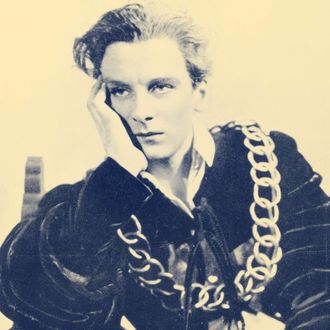
In one of the more poignant quotes from her interview with Vanity Fair last week, Caitlyn Jenner talked about the deep discomfort she felt for decades as she hid the person she really was:
The uncomfortableness of being me never leaves me all day long. I’m not doing this to be interesting. I’m doing this to live … if I was lying on my deathbed and I had kept this secret and never ever did anything about it, I would be lying there saying, ‘You just blew your entire life. You never dealt with yourself.’ And I don’t want that to happen.
It’s an extreme and heartbreaking depiction of the distress you feel when you’re acting in a way that doesn’t really feel like you. (A lesser example might be, say, pretending that, yes, you’d just love to attend that bachelorette party in Las Vegas.) In an intriguing new study published in Psychological Science, a trio of researchers led by Harvard Business School’s Francesca Gino claim to have uncovered one reason why very few of us enjoy behaving in ways that feel false for long stretches of time: To our minds, authenticity may be a moral imperative.
Across five experiments, Gino and her team, which included Maryam Kouchaki of Northwestern University’s Kellogg School of Management and Adam D. Galinsky of Columbia University, found that when people are nudged into recalling past experiences where their behaviors felt inauthentic, they tended to feel more immoral and impure than those who’d remembered a time they behaved authentically. In one online experiment, for example, the researchers asked 269 participants to write about a time in their personal or professional lives when they did something that made them feel, to some degree, fake. Afterwards, the study volunteers were asked about their current feelings of impurity, rating how “dirty” or “tainted” they felt on a 7-point scale. Those in the inauthentic condition reported stronger feelings of impurity (3.56 out of 7 on average) compared to those who’d been thinking about a time they did something that made them feel true to themselves (1.51 on average). The finding echoes previous work by University of Michigan psychologists, which also suggested a link between immorality and literal feelings of impurity. (In that study, after people were told to tell a lie on a voice mail, they were more likely to express an interest in mouthwash in a subsequent and ostensibly unrelated survey on consumer products.)
In contrast, recalling moments of authenticity made people feel pretty good about themselves. That same experiment found that those who’d remembered a personal moment of living their truth (as Oprah might phrase it) were also more likely to describe themselves in prosocial terms, such as helpful and cooperative, than the inauthentic group. But in a follow-up experiment, the researchers found that feeling fake is actually more likely to drive people to act in helpful ways, perhaps in an attempt to compensate for the feeling of moral degradation. A third of 92 people who’d been asked to remember past instances of inauthenticity lent more of their time to the researchers by filling out an optional extra 15-minute survey; just 17 percent of the 97 people who’d written about a time they felt true to themselves agreed to help out.
It’s another research project spearheaded by Gino on how acting fake makes us feel terrible. Last year, for example, she published a study that claimed the reason so many people despise professional networking is that it makes us feel inauthentic, and, therefore, literally gross. Finding ways to be true to yourself — whatever that means to you — may be something more than a meaningless self-help cliché; as Gino and her colleagues conclude, “being true to thine own self is experienced as a form of virtue.”




